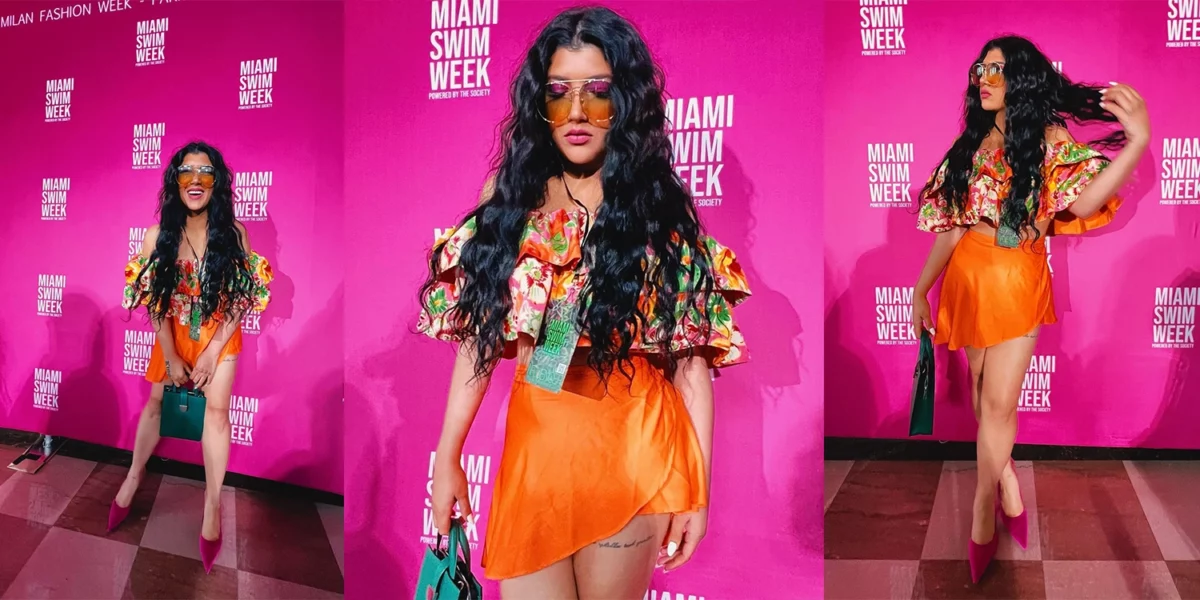Fashion Week occurs biannually in major fashion capitals like New York, Paris, Milan, and London. Fashion Week, showcasing the latest trends and designs, is a highly anticipated event in the fashion industry.
Taking place twice a year in major cities around the world, it sets the tone for upcoming seasons and influences the way people dress. Designers, models, celebrities, and fashion enthusiasts gather to witness runway shows, network, and celebrate creativity and innovation in the fashion world.
The buzz around Fashion Week extends beyond the runways, with street style capturing the attention of photographers and social media influencers. With a mix of high-end luxury brands and emerging designers, Fashion Week is a platform that shapes the future of fashion and sets global style trends.
Credit: www.facebook.com
History Of Fashion Week
Fashion Week is an event where designers showcase their latest collections to the world, setting the trends for the upcoming seasons. It all began with a vision to bring the world of fashion to a grand stage, captivating audiences with creativity and elegance.
Early Beginnings
In the early 20th century, Paris was the first city to host what would later be known as Fashion Week, bringing together designers, buyers, and fashion enthusiasts in a celebration of style and innovation.
Evolution Over The Years
As the fashion industry expanded globally, Fashion Week spread to cities like New York, Milan, and London, becoming a cornerstone of the fashion calendar and a platform for emerging designers to shine.
Global Fashion Capitals
Fashion Weeks are held biannually in global fashion capitals such as New York, Paris, Milan, and London. The events showcase the latest trends and designer collections for the upcoming seasons. The frequency of Fashion Weeks allows the fashion industry to constantly evolve and adapt to changing consumer tastes and preferences.
Milan
Milan, known for its luxurious designs, hosts one of the most prestigious Fashion Weeks globally.
Paris
Paris stands as a global fashion hub, showcasing cutting-edge styles during its Fashion Week events.
New York
New York’s Fashion Week is iconic for setting trends and bringing together top designers and models.
London
London plays a significant role in the fashion world with its eclectic mix of traditional and contemporary styles.
Fashion Week Calendar
Fashion Week is an eagerly anticipated event in the fashion industry. The Fashion Week calendar is a vital guide for anyone interested in attending or participating. It provides details on the seasonal schedule, key events, and prominent shows. Understanding the Fashion Week calendar allows fashion enthusiasts and professionals to stay abreast of the latest trends and developments in the industry.
Seasonal Schedule
The Fashion Week calendar follows a seasonal schedule, with separate events for the spring/summer and fall/winter collections. Each year, major cities around the world host these events, showcasing the latest designs and trends from renowned fashion houses and emerging designers.
Key Events And Shows
Throughout the Fashion Week calendar, several key events and shows attract global attention. These include iconic runway presentations, designer showcases, and industry networking events. Fashion Week is also a platform for emerging talent to gain recognition and exposure.

Credit: www.choosechicago.com
Impact Of Fashion Week
When it comes to the fashion industry, there is one event that stands out above all others: Fashion Week. This biannual gathering of designers, models, celebrities, and fashion enthusiasts has a significant impact on the world of fashion. Not only does it set the stage for the latest trends, but it also has important economic and cultural implications. In this article, we will explore the influence of Fashion Week on trends, as well as its economic and cultural significance.
Influence On Trends
Fashion Week is known for setting the tone for upcoming trends. Designers from around the world showcase their latest collections, giving the fashion industry a sneak peek into what will be hot in the upcoming season. From clothing to accessories, hairstyles to makeup, Fashion Week serves as a barometer for what is considered stylish and fashionable. The runway shows, street style, and front-row celebrity appearances all contribute to the influence of Fashion Week on trends.
Economic And Cultural Significance
Fashion Week not only impacts the industry aesthetic but also holds significant economic and cultural importance. The event attracts a plethora of international buyers, leading to booming sales for designers and brands. The exposure gained during Fashion Week can catapult a designer’s career to new heights. Moreover, Fashion Week boosts local economies as it generates revenue from tourism, hospitality, and retail. Cities that host Fashion Week events experience an influx of visitors and heightened media attention, putting them in the spotlight on a global scale.
Future Of Fashion Week
Fashion Week is a renowned event that takes place in several fashion capitals around the world, offering designers the opportunity to showcase their latest collections to a global audience. However, with the rapid advancements in technology, the future of Fashion Week is undergoing significant transformations to adapt to the changing landscape of the fashion industry.
Digital Transformation
The digital age has revolutionized the way we consume fashion content. With the rise of social media platforms and streaming services, fashion shows are no longer restricted to a select few in attendance but can reach a vast online audience. Designers are now incorporating digital elements into their presentations, creating immersive experiences that transcend physical boundaries.
| Benefits of Digital Transformation in Fashion Week |
|---|
| 1. Increased accessibility |
| 2. Global reach |
| 3. Real-time interaction |
| 4. Cost-effective |
Sustainability Initiatives
In recent years, the fashion industry has faced scrutiny for its detrimental impact on the environment. As a result, sustainability has become a key focus for many fashion brands and designers. Fashion Week plays a crucial role in promoting eco-friendly practices and encouraging sustainable fashion choices.
Key sustainability initiatives adopted by Fashion Week:
- 1. Ethical sourcing of materials
- 2. Recycling and upcycling
- 3. Reduction of water and energy consumption
- 4. Promotion of slow fashion and conscious consumerism
By incorporating these initiatives into Fashion Week events, the industry aims to minimize its carbon footprint and pave the way for a more environmentally-friendly future.

Credit: thesocietyfashionweek.com
Frequently Asked Questions Of How Often Is Fashion Week
What Are The 4 Main Fashion Weeks?
The four main fashion weeks are New York, London, Milan, and Paris Fashion Weeks.
Is New York Fashion Week Twice A Year?
Yes, New York Fashion Week happens twice a year, in February for the Fall/Winter collections and in September for Spring/Summer.
Is Fashion Week Always In New York?
No, Fashion Week is not always in New York. It also takes place in other cities worldwide, such as Paris, Milan, London, and Tokyo.
Is Fashion Week Always In February?
Fashion Week is not always in February. It varies depending on the city and country, with different fashion weeks happening throughout the year worldwide. Some cities hold their Fashion Weeks in February, while others have them in different months like September, October, or March.
Conclusion
Fashion Week is a biannual event that showcases the latest trends and designs. Keeping up with this event can inspire creativity and sense of style for us. Whether we’re industry insiders, fashion enthusiasts, or just love to exude style, Fashion Week offers an exciting glimpse into the world of fashion.
